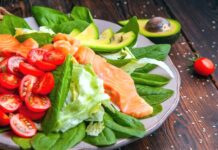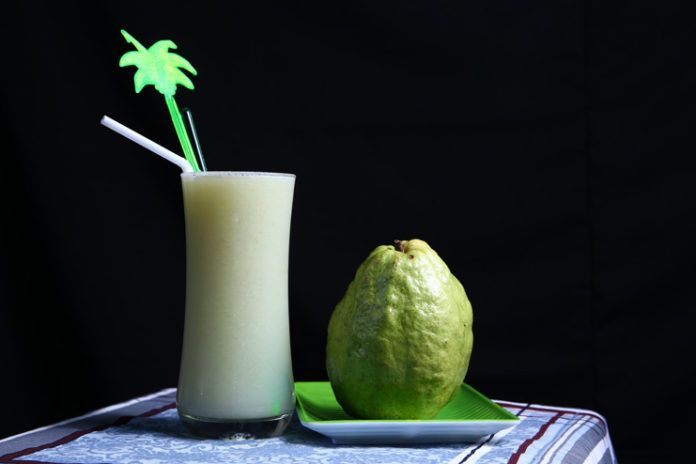Affiliate Disclaimer
Some links in this article are affiliate links. We may earn a small commission if you make a purchase through these links, at no extra cost to you. We only recommend products we find useful to our readersIf you want to spike your energy level the best way is by consuming fruits or having a glass of fresh juice. It not only keeps you energized but when you are hungry and looking for a quick solution to satisfy your hunger, the best way is to have fruits. Fruits are highly packed with essential nutrients and minerals which is important for your body and the same is with fruit juices, as these juices are a product of fruits in the end.
Using fruit juices instead of fruits has become a convenient option to consume important nutrients quickly. Although there are benefits to drinking fruit juice, it may not benefit as a whole fruit.
Eating whole fruit may not give you many options to combine it with others compared to fruit juices which can be combined with other veggies for a change in taste. But whole fruits can carry much more nutritional value than fruit juices. If you are confused as to how and in which way it affect you, then you would have to read the article to understand in detail about the same.
Fruit Juice or Whole Fruit?


We are referring to Fruit juices which indicate fresh juices extracted from whole fruits at home and not the packed ones which are available in the market. It is beneficial to eat the fruit directly, and not drink it from the packed one.
Package juices not only destroy their beneficial compounds but nearly remove the natural fiber present in them, in fact, they seem to increase the sugar content and reduce the fibers present in the same. The packed bottle contains a lot of preservatives that may have a detrimental effect on your health.
Natural Juices extracted directly from fruits do nourish your body with vitamins, minerals, antioxidants, and other nutrients which are available in the whole fruit. These nutrients are easily available to your body for absorption.
When you extract juice they can sieve off the fiber content that the pulp and skin of the fruit contains. Fiber helps in boosting digestion, controlling blood sugar, and lowering cholesterol. The best part is it also helps to keep you full for longer, particularly if you are looking to lose weight.
Read More: 10 Fruits for Glowing Skin
Is Fruit Juice as Healthy as Fruit?


When compared to whole fruits, natural fruit juices have less vitamin C and also less dietary fiber. The pulp of most fruits is infused with rich vitamins and nutrients, whereas when the juice alone is extracted, these nutrients and minerals may lose their presence from the fruit in it compared to if you were to consume the whole natural fruit.
Natural fruit juice contains a high concentration of polyphenols, which helps in reducing the risk of cardiovascular disease. The benefits of pure fruit juice consumption help to effectively reduce diastolic blood pressure levels although no such effect was indicated on HDL-cholesterol, LDL-cholesterol, or total cholesterol. Natural fruit juice consumption spanning about 7 glasses per has been significantly associated with lowering the risk of stroke.
Some possible adverse effects include a linkage between fruit juice consumption and a person’s body weight, especially in the context of children.
It was reported in the research that 240 ml of natural fruit juice per day can be linked with a slight weight gain in children and adults, though this may not be of any clinical significance.


The study concludes that the consumption of whole fruit should be preferred over natural fruit juice as the health benefits of fruit consumption have been more conclusive. While no study can be considered as proof, you can find ways to opt for consuming more fresh fruits on your plate every day.
Benefits of Fresh Juice


- Drinking fruit juice is a tasty way to enjoy fruits and vegetables that you would otherwise not like.
- You can conveniently consume fruits and vegetables alone or in combination when you opt for fruit juice rather than whole fruit.
- You are likely to consume fruits and vegetables in larger quantities when you drink them in juice form than in the whole form, which can help meet your daily nutritional needs from these foods.
- Drinking juice is easy on the gut.
Disadvantages of Drinking Fresh Juice
- Drinking Fruit juice can be high in sugar calories.
- Drinking juice may not be as filling as eating whole fruits because of the lack of fiber in it.
- Fresh natural juice if it is not consumed immediately, can develop bacteria and cause food poisoning.
- Juicing requires a high level of hygiene. As bacteria can easily grow in an unclean juicer and cause food poisoning.
- Bacteria and other pathogens which also grow in fresh fruit juice can harm your health that is left to stand for a few hours.
What is the Recommended Daily Intake of Fresh Juice for Adults and Children?
Fresh juice should always be consumed as part of a balanced diet that includes protein, good fats, fiber-rich vegetables and fruits, carbohydrates, and low-fat dairy products.
Children who are below the age of six should consume about 120-180ml of 100 percent natural juice per day. If children drink more than the recommended servings of juice, it may affect their consumption of milk, which they need for building bones. It can also cause an excess in sugar calories, which can lead to obesity.
Those aged seven to eighteen years must consume about 240-360ml of juice each day. For adults, 250ml of juice is the recommended quantity per day, whether natural fruit, pure vegetable, or mixed. If you consume more than the required quantity can cause an imbalance in nutrients in your body and it can lead to health conditions such as obesity and diabetes.
Is fresh juice safe for pregnant women and the elderly?
Since there is a fear of food poisoning because of bacterial infection from natural fruit juice it is advised for pregnant women to avoid fresh juice. However, they can consume fresh juice from a highly-trusted source, occasionally. Or can prepare themselves at home and drink it immediately. The contaminated juice can harm the mother and the unborn baby because of the bacterial infection in it, as claimed by the health professionals.
Pregnant women should also avoid excessive consumption of orange juice which has strong acids and can cause tooth damage. Heartburn or gastrointestinal high amounts of vitamin C can cause discomfort in pregnant women.
Elderly people can consume one serving of fresh juice each day. People who have a weakened immune system should be careful when consuming natural fresh juice, it is best if they only consume from a highly-trusted source.
These people can consume a combination of fruits and vegetables to avoid excess sugar, which can contribute to an increased risk of diabetes, or raise levels of blood sugar in a diabetic patient. Apples, carrots, spinach, cranberries, blueberries, and beetroot, are nutritious sources of fresh juice for older people.
Differences Between Fruit Juice and Whole Fruits
Fruits are natural fat burners. They are a powerhouse of vitamins, minerals, fiber, energy, and antioxidants. Fruits also contain digestive enzymes, these enzymes help to break down protein, carbohydrates, and fats into smaller forms. To help you understand more on the difference between eating whole fruits and drinking fruit juice, we have provided the pros and cons of each fruit and fruit juice in detail below.
Fruit Juice –
Easy To Absorb
Natural fruit juice is comparatively easy to absorb than whole fruits. If you have a glass of fruit juice your body will be able to absorb all the amazing nutrients of the juice quickly. When you need an instant energy boost, fruit juices are a must-have and also during days of scorching heat.
High In Sugar Content-
Fruit juice isn’t the same as whole fruit as it has more sugar than many classical sugar drinks. So fruit juices are also high in calories as they have high concentrated sugars in them. Moreover, as juices are directly absorbed by the body, they do not fill your stomach and thus, make you crave more.
Convenient-
In this fast-moving world, juices are an effective way of consuming fruits in larger quantities. The main benefit of drinking natural juice is that they are easy to consume, quick, hassle-free, and can be had anytime, anywhere.
Low In Fiber-
Natural Juice contains less amount fiber and more amount of sugar which do more harm than good. Most of the fiber comes from the skins and peels of the fruit which is very good for your health. It is lacking all the essential nutrients and fiber that are stored in these peels of the fruit.
Loaded With Preservatives-
If you are consuming packed juices or canned ones, they are bad for your health. These fruit juices are loaded with preservatives to increase their shelf life which is not very healthy for the overall health of your body.
Whole Fruits-


Rich In Nutrients-
Whole natural fruits benefit your body in all ways. It keeps all the nutrients and minerals intact, prevents any damage caused by processing, and gives you all the benefits that the fruit has in it. Many of the nutrients and vitamins are sensitive to heat. If you do not prefer whole fruits but still want to enjoy the health benefits of dietary fiber, then you can blend the fruit into a smoothie and enjoy it.
Packed With Fiber-
Whole natural fruits benefit you from all the dietary fibers both soluble and insoluble types. The combined health benefits of dietary fiber are such as reduced cholesterol, fewer digestive problems, lower blood pressure, improved insulin sensitivity, appetite control, and reduced obesity issues. Due to the high content of fiber in whole fruits, they not only make your stomach feel full but also prevents you from feeling hungry and craving unhealthy food.
Less in Calories-
Fruits contain natural sugars which are good for your health. You do not need to add any extra sugars and preservatives which make them low in calories. Eating fruits are digested slowly and does not cause an instant spike in the glucose level, which makes it a better option as compared to juices.
Not Convenient-
Consuming whole fruit instead of drinking it in the form of juice involves a lot of time and effort which is not always possible. However, with the number of benefits that fruit has to offer, it is worth the hassle. Juices are a quick option when you are on the run and do not have much time to sit and eat the whole fruit. Although, you can always carry the whole fruit instead of chopping them and enjoy it as a healthy snack anytime.
Not so Travel-Friendly-
It is almost impossible to carry large amounts of fruits while traveling but you can readily pack your fresh fruit juices into air-tight containers. You can take the whole fruit when going to work, and have it instead of slicing it up and having it later. That takes away some of the nutrients from it. But that doesn’t make fruit juices healthier than fruits.
As per reports done from studies and advice given from nutritional experts, whole fruit is said to be a much healthier option than juice. So it’s better to eat the fruit than drink the juice. But make sure to include fruits in your diet as it is recommended that including 3-4 servings of fresh fruits in your diet can lower your risk of chronic diseases such as Type 2 diabetes, various types of cancers, hypertension, and heart problems.
Comparison- Apples or apple juice?
An interesting study compared apple slices, and apple juice of two kinds eaten just before starting lunch. It was noticed that apple slices reduced the total intake of energy during lunch by 91 kcals less, and 150 kcals less with apple juice, while producing feelings of satisfaction and reducing hunger prangs.
This helps to understand the positive health benefits of eating whole fruit shortly before a meal by its total energy intake in your body during the meal. The form in which the fruit is consumed has an impact on your health. So when you consume it after the meal it leads to a lower total intake, which was much more marked with whole fruit than with juice
Although, if fiber content does not fully account for this difference in energy intake with fruit juice and whole fruit, certain expectations which can be subjective can contribute to the variation. It was expected to feel fuller with whole apple slices than with natural apple juice, which may have influenced the variety of eating.
The next study is a difference in the structure of whole fruits and juice. Whole fruits require chewing which gives them a larger volume. Although when the volume-matched experiment was done, the effect of apple juice was different.
Chewing can also affect metabolism. This has been reported by research on the cephalic phase of digestion which shows that chewing is the initiating factor in this stage. This may partly explain the feeling of fulness after eating whole fruit as compared to fruit juice. That is how research concludes that eating whole fruit is beneficial to health and prevents a broad category of diseases, while fruit juice may be ineffective to overall health in some ways.
Conclusion
Did you ever think there can be so a difference between consuming the whole fruit and having fruit juice? Well, it is true that certain studies and research shows that having whole fruit can benefit you in a number of ways compared to fruit juices.
Although, if you are someone who does not prefer whole fruit, it is at least better to consume natural juice so your body can absorb all the nutrients from it and benefit it. if you compare whole fruits and packed fruit drinks it is better to avoid the packed fruit drink anytime. Hope this post has helped you to understand the difference and make a change in your diet. Thank you for reading.
Other Recommended Articles




























